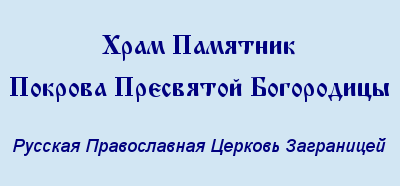Dear Brothers and Sisters in Christ,
Congratulations with the feasts of the Resurrection of the Lord, the Apostle James Alphaeus, as well as the fathers of the Seventh Ecumenical Council!
Last week we began a series of sermons on the topic of death and the Orthodox rites associated with it. Last time we noted that man is a mixture of the earthly and spiritual, that he is made in the image and likeness of God, and that he has three distinct parts: a body, soul, and spirit. Today let’s discuss, from a spiritual, not medical point of view, what death is.
Probably it is easy enough to define what death is, but despite this simplicity there is much mystery tied to it. Death, it seems to me, is easiest to define as the separation of the soul, including the most exalted part of it, the spirit, from the body. This simple definition does not preclude the difficult question of when this actually happens. Sometimes people suffering from a severe illness, or those who are very old, take a long time to die. Their bodies shut down or stop working very slowly; their organism refuses to give up and continues to fight for life. At the same time, they already have a foretaste of a different life beyond the grave, sometimes remembering very clearly or even seeing their departed relatives. It appears that they are in between life and death. In other situations it happens that after a severe stroke or other misfortune, the life of a person is artificially continued or supported. Machines keep the heart beating and the lungs breathing, while the soul is unable to control the body, that is, the person is incapable of doing anything on his or her own. Once again, we see that the person is somewhere between life and death.
Death is so difficult for us to deal with, of course, because it is unnatural for a person. If we believe in an all-loving God, we cannot accept that He created us to suffer, become ill, and die. No, He made us to live, and not simply to live, but to live a life that is blessed. Along with this, the Lord gave each person the free will to decide his or her own path in life: to serve the Creator, seek after Him, be with Him, or to live without Him. Unfortunately, not only the first created people but we as well sometimes choose a life without God. Because of this choice it is not only we that suffer, but also the world around us: innocent children, animals, and, in general, all creation.
In today’s Gospel reading we heard how our Lord Jesus Christ met the inhabitants of a village who were bringing out for burial a certain boy, the son of a widow. We heard how the Lord took pity on the grieving mother and resurrected her son. Of course, the Lord is no less merciful towards us. Although each of us will pass through the unnatural and frightful door of death, the Lord does not abandon us, but promises to each of us resurrection and eternal life. It remains for us to choose what type of life this will be – a wonderful and joyful life with God, or a godless and dark one. Through the prayers of today’s saints, may we decide on a life with God which we can inherit through a good Christian life here on earth.
priest Alexis







